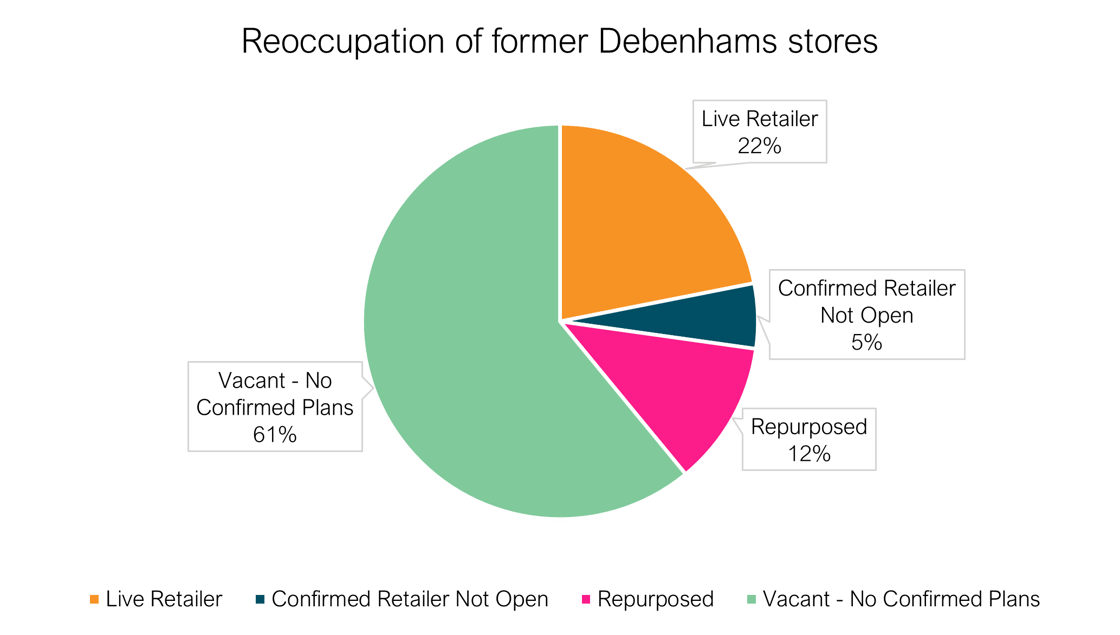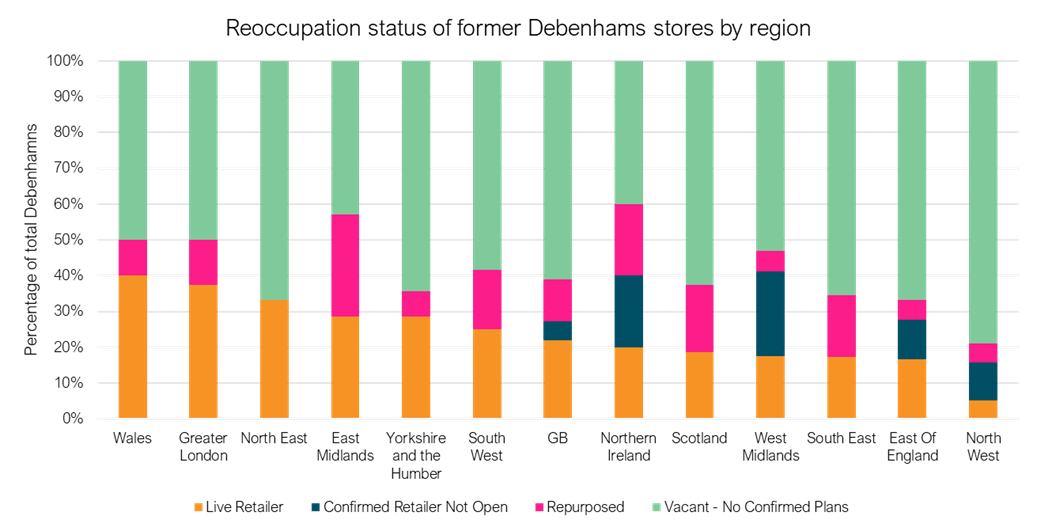The Debenhams estate: where are we now?
Date published: 2023-01-10 Date modified: 2023-08-16

Author
Sarah Abu-Amero, LDC Marketing Executive
The Local Data Company
 901
901
901
901
Sarah joined LDC in 2021, having previously worked as a copywriter and social media manager. She supports the team with digital and written communication, planning and creating content for the company’s website and social accounts.

